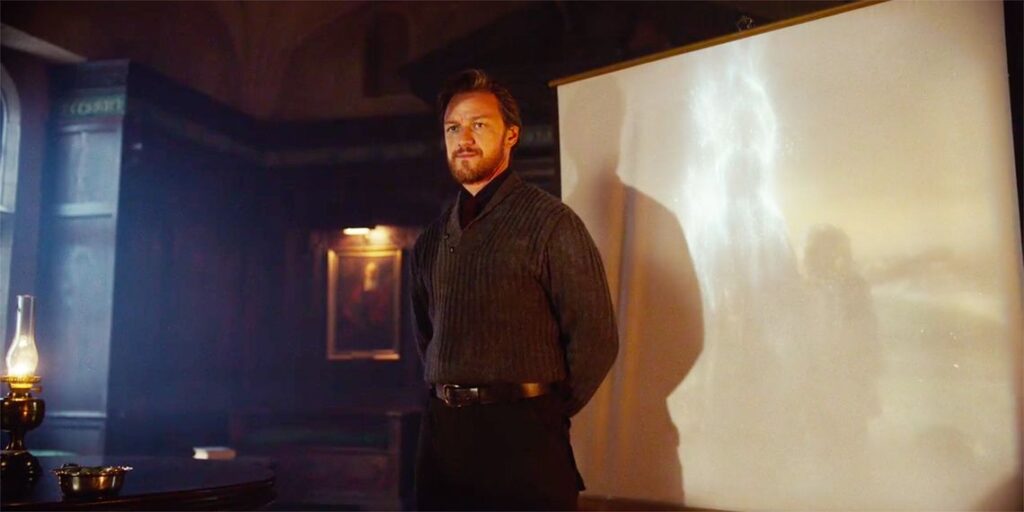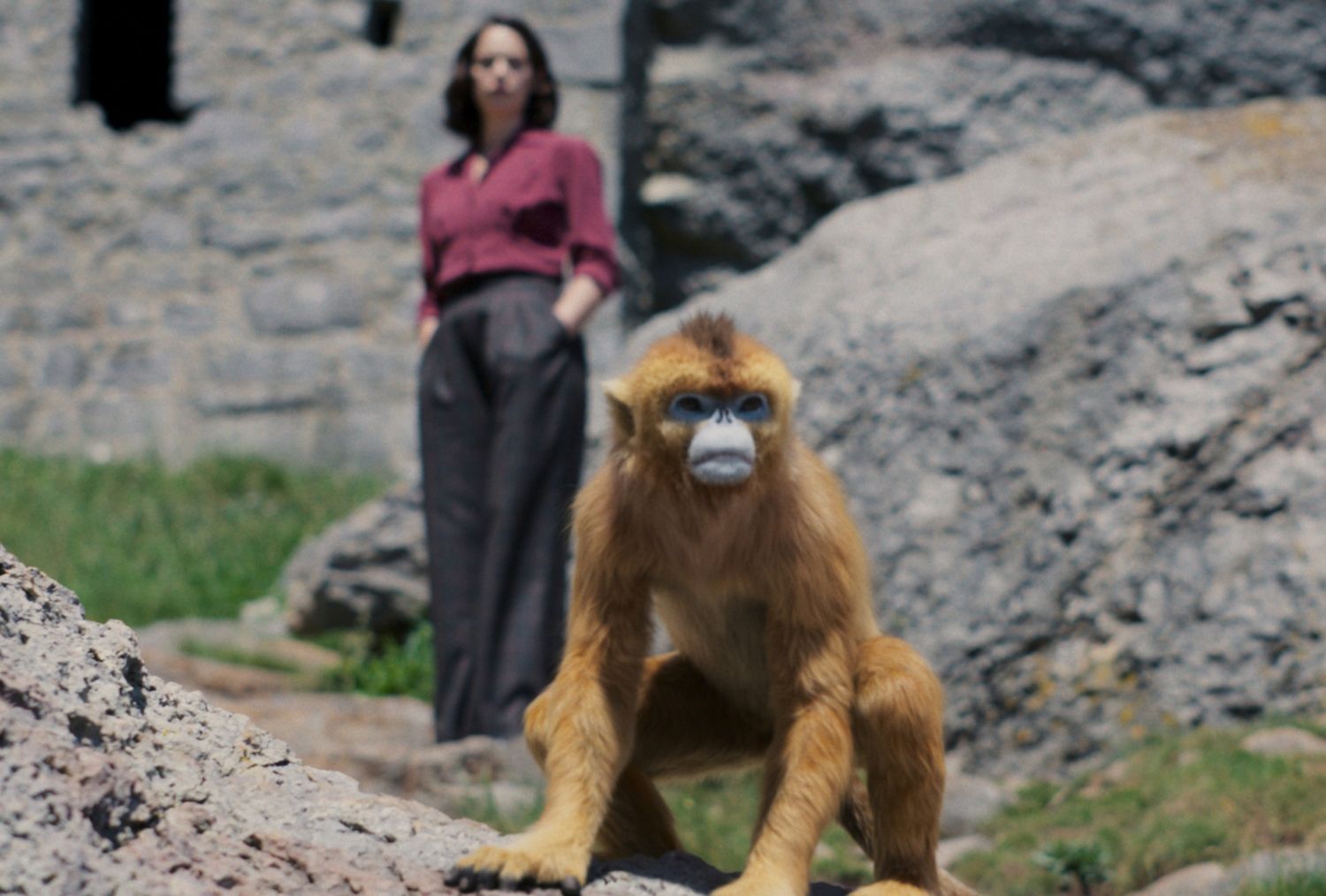Based on the same-titled trilogy of Philip Pullman books, the fantasy drama His Dark Materials on HBO follows the exhilarating journeys of lead Lyra (Dafne Keen), who journeys beyond realms in search of mysteries and secrets. But at the centre of Lyra’s voyage is a chemical that was instrumental in bringing about these very adventures. It so happens that this substance is none other than Dust.
Where Did Dust Come From?
The books demonstrate that Dust and consciousness co-evolved, with the latter essentially creating the former. It is thought that the material helped humans and mulefa become sapient species before condensing into Angels.
When he came across a field dealing with consciousness, Boris Mikhailovitch Rusakov made the first discovery of the material. This field’s very existence implies the presence of a particle quite comparable to it. As a result, Dust, also known as the “Rusakov particles,” was found. Dust is naturally drawn to consciousness, to the point where it is frequently believed that the two are one.
But in a cosmos very similar to ours, Mary Malone’s work is where Dust first appears (Simone Kirby). As the researcher investigates dark matter, Malone initially referred to it as “shadows” in an allusion to Plato’s Allegory of the Cave.
Based on the numerous theological allusions and overtones throughout the series, Dust in Lyra’s universe could also be thought of as the “original sin,” coming from the moment Adam and Eve fell from grace. The substance is specifically recognised as such by the Magisterium, who regard it as unsavoury and dangerous. Lyra understands that “Dust is all that is greatest about people — love, kindness, and curiosity — and must be promoted rather than destroyed,” in the words of Pullman.
Dust Can’t Be Seen by the Naked Eye
Dust has an intriguing quality in that it is unnoticeable. No character has the ability to taste, smell, or even touch Dust. Dust cannot be seen as it is with the naked eye. In many ways, the many attempts to witness the presence of Dust itself make up a significant portion of the plot of the entire book trilogy and, consequently, the television series.
The phenomenon of dust-spotting is so uncommon that only a select few individuals can legitimately claim to have witnessed it, albeit once more with the aid of technology. It has been known from the outset that Lord Asriel (James McAvoy) is one of these privileged individuals, having seen it through photograms.
Later, Mary Malone develops a computer software that enables communication with the subject via a detector and a few inquiries, and this is how she comes into contact with Dust. She can take a piece of mulefas’ amber from their planet to look through and observe the dust evaporating from their realm when she travels there.
Is Dust Connected to Puberty?
Because this degree of consciousness has varied meanings for many societies, dust is particularly drawn to mature consciousness, and this attraction can take many different forms. In Lyra’s world, a person reaches adulthood when their daeemon takes on a fixed shape, whereas in the mulefa, it is indicated by teenagers who use wheels. It appears commonly acknowledged that as youngsters enter puberty and make the transition from childhood to adulthood, Dust starts to settle on them.
Dust Is Vital to Life
Image from HBO of Simone Kirby as Mary Malone in His Dark Materials
Lyra learns that dust is necessary for existence because “without dust, people will not be able to survive.” Since Dust is what finally binds a kid and their d’emon together, it also acts as a kind of life source because the relationship is so vital that both the child and d’emon may die if it were to be severed.
Dr. Carne gave Lyre the alethiometer, a tool that aids in uncovering the truth, before she left for London with Marisa Coulter (Ruth Wilson). Dr. Carne declares, “Powers in this world are tremendously strong. Men and women are influenced by tides far fiercer than you can conceive. Hopefully, this will offer you some protection. By speaking with Dust, the alethiometer essentially discloses the “truth.” But the alethiometer only responds to queries with a convoluted mixture of symbols that Lyra must decipher for herself. For adults, learning how to read an alethiometer requires years of study and practise; however, Lyra is Eve and a child of prophesy, thus she has this ability quickly and naturally.
In the epilogue, Lyra uses the alethiometer to locate Mary, who explains the nature of Dust and demonstrates how the religious people were completely mistaken regarding Dust’s necessity. As Pan settles and Lyra leaves childhood, she is no longer able to naturally read the alethiometer after her time with Will (Amir Wilson).
What Does Dust Have to Do With Lyra and Will and the Prophecy?
As previously stated, Dust is drawn to maturity. In specifically, what makes Pan settle as a pine martin and Dust settle on Lyra is the feeling of a powerful emotion like eros, or romantic love. When Lyra discovers she is in love with Will, she goes through this.
They kiss, and the dust stops. It whirls and appears to drop down directly. The windows leading to other realms don’t appear to have been sealed by the angels. Why then does Dust appear to flow precisely as it should when Will and Lyra finally admit their love for one another?
Lyra fulfils the prophecy of being the new Eve by realising her affections for Will. In other words, she has an eros experience that is equal to Eve’s, restoring the balance of Dust’s natural flow and allowing it to flow once more in the direction of mankind. Of course, in order to maintain this equilibrium, they are instructed to seal all of the windows in all of the worlds, preventing Dust from escaping and separating Will and Lyra for good in their own realms.





